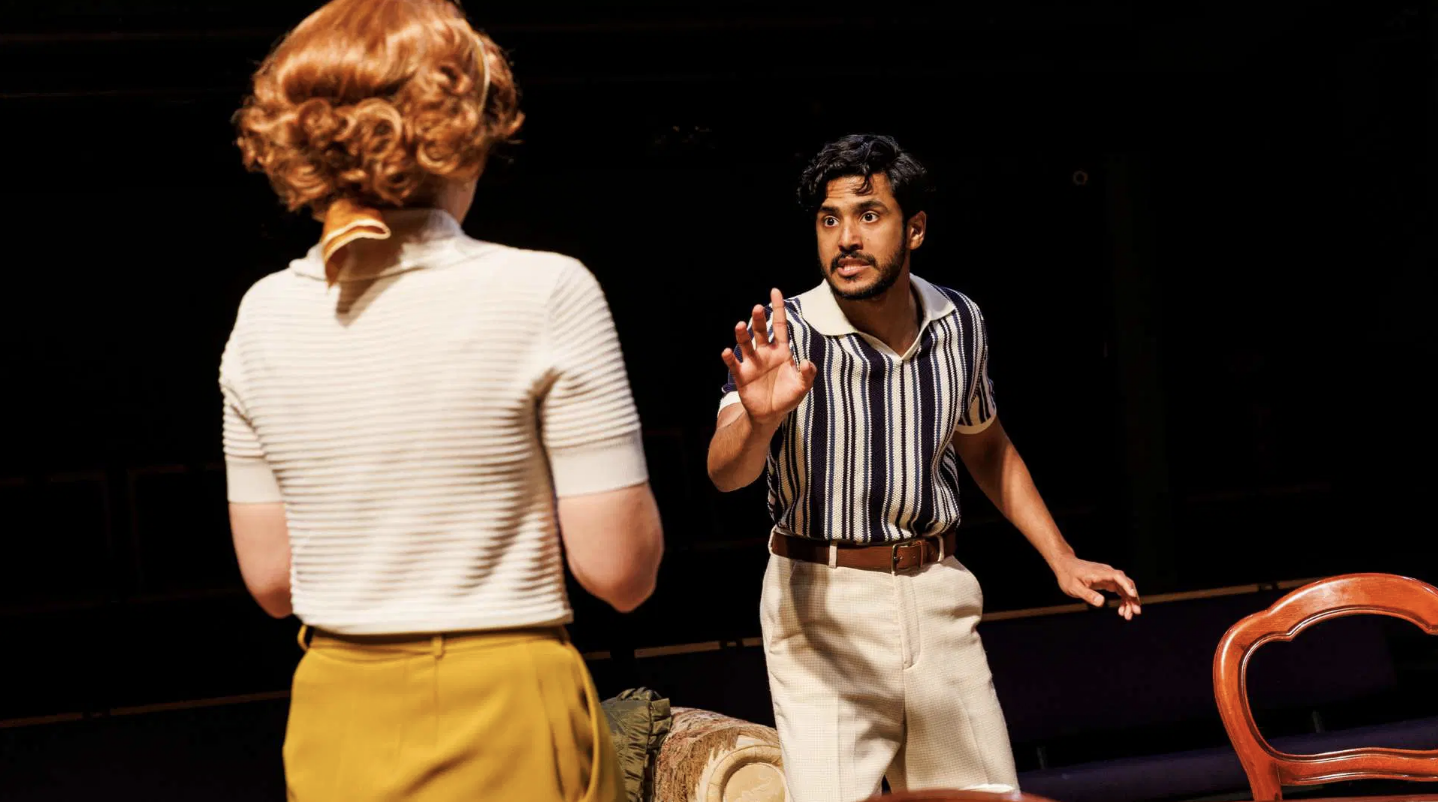Somerset Maugham on Reason and Passion: ‘I Don’t Offer You Happiness. I Offer You Love’
W Somerset Maugham, 1957. Photograph: Jane Bown/The Observer
A little while ago I saw ‘The Circle,’ a splendid 1921 play by W. Somerset Maugham. (The Orange Tree Theatre, Richmond until 17 June)
‘I suppose it’s difficult for the young to realize that one may be old without being a fool.’
Maugham is rarely performed nowadays. Perhaps his writing is a little too polished, his characters a little too aristocratic, for modern tastes. Nonetheless, he was a sharp, witty wordsmith with an eye for the nuances of social attitudes and cultural change, and he has been described as ‘the missing link between Wilde and Coward.’
‘England seems to me full of people doing things they don’t want to because other people expect it of them.’
‘The Circle’ considers the compromises of marriage and the consequences of love. In a lightly humorous way, it asks us to reflect on the true nature of happiness.
‘Man is a gregarious animal. We’re members of a herd. If we break the herd’s laws we suffer for it. And we suffer damnably.’
The action takes place at a Dorset country house where Arnold Champion-Cheney is preparing to meet his mother, Lady Kitty, for the first time since she ran off with her husband’s friend Lord Porteus 30 years ago.
‘I don’t mean to bear malice, but the fact remains that she did me the most irreparable harm. I can find no excuse for her.’
Arnold is a somewhat stiff fellow, who serves as an MP and is primarily interested in politics and furniture.
‘It always makes me uncomfortable when people are effusive.’
Oivia Vinall and Chirag Benedict Lobo in The Circle, photo by Ellie Kurttz
Elizabeth, Arnold's wife of three years, is, by contrast, a romantic. She rather admires Lady Kitty for sacrificing her social standing for love, and she has engineered the reunion.
‘When you’re loved as she’s loved, you may grow old, but you grow old beautifully.’
Elizabeth is beginning to find life as a rural MP’s wife terribly tedious, and she is falling in love with Teddy Luton, her husband’s friend, a charming businessman visiting from Malaya.
It looks like history is about to repeat itself.
As the drama plays out, it transpires that the Champion-Cheneys' guests are not quite the idyllic couple Elizabeth has imagined. Lord Porteus is grumpy and combative. Lady Kitty is selfish and frivolous.
‘My dear, her soul is as thickly rouged as her face.’
Nonetheless Elizabeth is convinced that her relationship with Arnold is redundant.
‘A marriage without love is no marriage at all…When two people are married it’s very difficult for one of them to be unhappy without making the other unhappy too.’
At this point Lady Kitty speaks out for her son, warning Elizabeth that infatuation fades.
‘It breaks my heart to think that you’re going to make the same pitiful mistake that I made… One sacrifices one’s life for love and then one finds that love doesn’t last. The tragedy of love isn’t death or separation. One gets over them. The tragedy of love is indifference.’
As Elizabeth oscillates between fidelity and romance; reason and passion; staying and going, Teddy makes a desperate plea for her to start a new life with him.
'But I wasn’t offering you happiness. I don’t think my sort of love tends to happiness. I’m jealous. I’m not a very easy man to get on with. I’m often out of temper and irritable. I should be fed to the teeth with you sometimes, and so would you be with me. I daresay we’d fight like cat and dog, and sometimes we’d hate each other. Often you’d be wretched and bored stiff and lonely, and often you’d be frightfully homesick, and then you’d regret all you’d lost. Stupid women would be rude to you because we’d run away together. And some of them would cut you. I don’t offer you peace and quietness. I offer you unrest and anxiety. I don’t offer you happiness. I offer you love.’
I was quite taken with Teddy Luton’s speech.
We spend a good deal of time nowadays reflecting on happiness. We survey the most ‘liveable’ towns and cities, the most agreeable countries and cultures. We calculate and calibrate our own personal satisfaction and wellbeing. We create happiness indexes. The assumption is that all of our decisions, in life and work, should ultimately add up to a higher level of contentment.
Yet perhaps happiness is not all it’s cracked up to be.
‘There is no more lamentable pursuit than a life of pleasure.’
If we narrowly judge careers against a set of logical contentment criteria; against an imagined goal of enduring happiness, we may end up pursuing a path that is ultimately unfulfilling. Sometimes there’s reward to be found in struggle and challenge; in passion and devotion; in ‘unrest and anxiety’.
Perhaps we should seek a job we love rather than one that makes us happy.
In raising questions about marriage and the conventional understanding of fulfilment, Maugham was somewhat ahead of his time. ‘The Circle’ was booed on its opening night. But I suspect he would have reassured himself that he was ‘merely a very truthful man’.
‘I never know whether you’re a humorist or a cynic, Father.’
‘I’m neither, my dear boy; I’m merely a very truthful man. But people are so unused to the truth that they’re apt to mistake it for a joke or a sneer.’
'My thoughts go back to a heavenly dance,
A moment of bliss we spent.
Our hearts were filled with a song of romance
As into the night we went,
And sang to our hearts’ content.
The song is ended,
But the melody lingers on.
You and the song are gone,
But the melody lingers on.’
Annette Hanshaw, 'The Song Is Ended (but the Melody Lingers On)' (Irving Berlin)
No. 422

